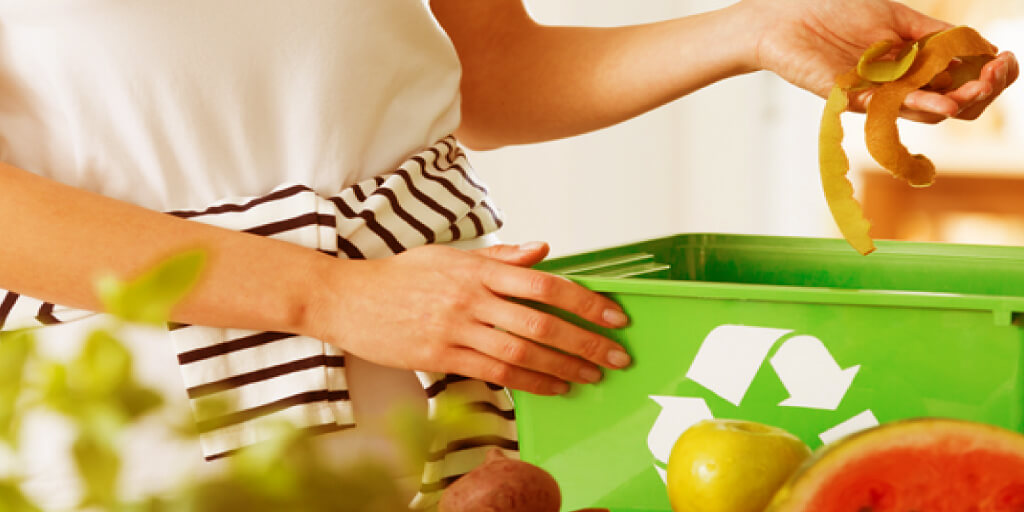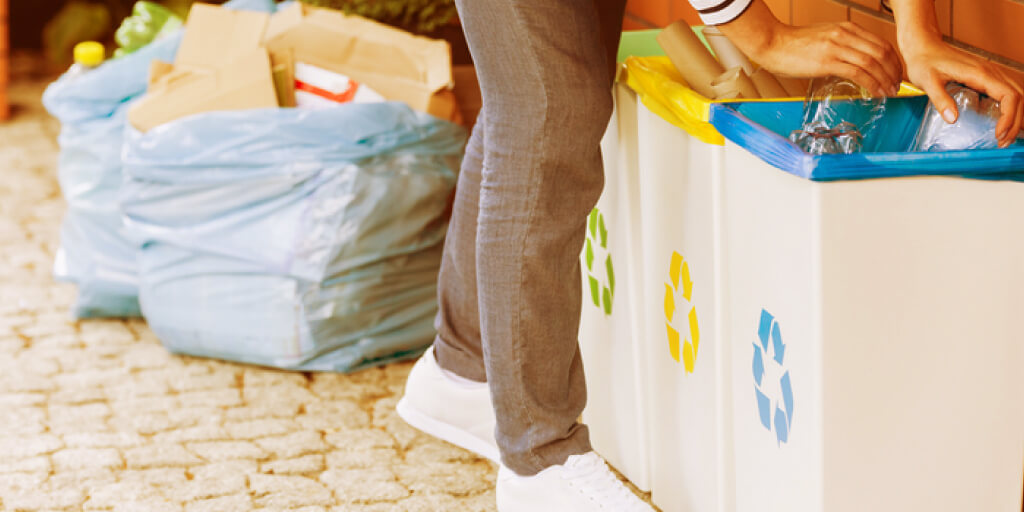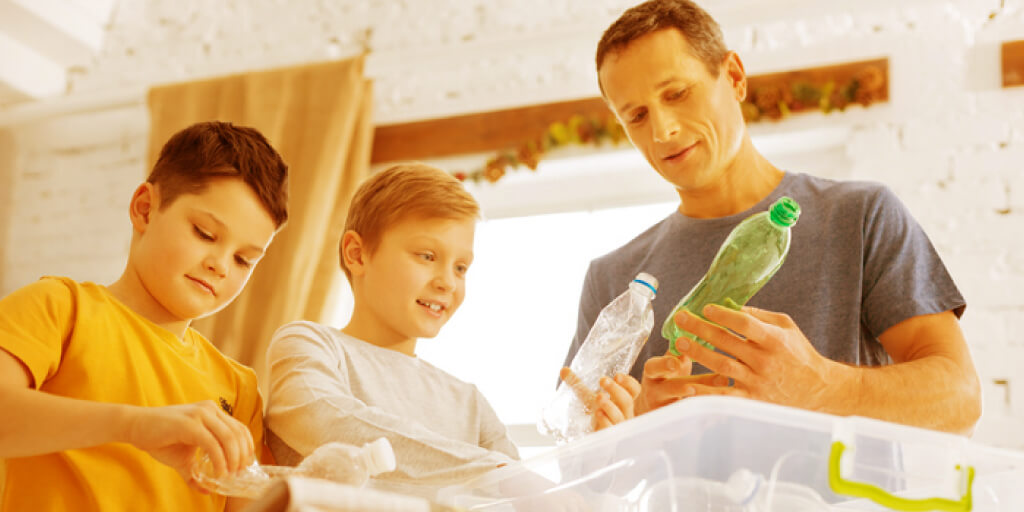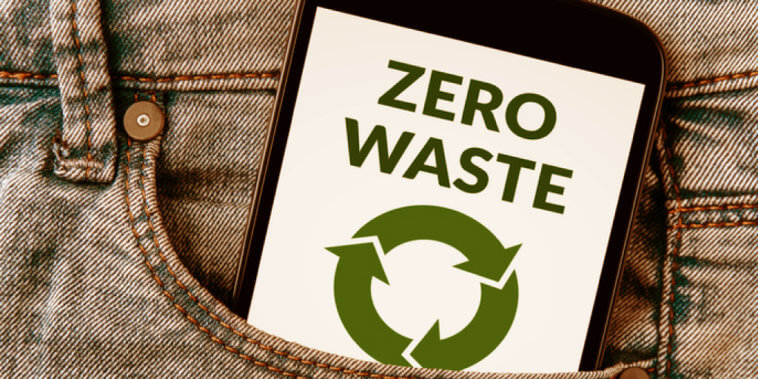Table of Contents
Global warming and pollution are reaching their heights in recent years and many people are wondering what to do. If you want to change something, you can easily start in your own home!
Going zero waste certainly sounds extreme but it’s actually not. It can be simple and easy if you know how to do it.
Read on to learn more!

What are the Benefits of Zero Waste?
Of course, there are many benefits of going zero waste. Here are some of them:
Reduces the impact on the climate – Using less plastic and recycling it is one of the key elements to improving our environment. You will have less impact on the climate as an individual too.
Conserves resources and reduces pollution – The culture of consumption is unsustainable and requires a ton of energy from various resources. It causes pollution, especially because the resources are later just dumped in a landfill or incinerated. A zero waste way is to conserve the natural resources and to reduce pollution in all areas of production. Products are made to last, in sustainable ways.
Benefits communities – This approach also builds the community and supports them, protecting the health of a community. Small businesses thrive in that economy. Then there is composting in community gardens, sharing of the tools and sharing skills. It ensures that everyone has what they need to use less and to leave less of an impact on the environment. Can help reduce air, water and soil pollution and makes for a healthier community altogether.
It benefits the economy – It supports the local economy and builds new jobs. One person’s waste is a resource for new things and it makes for new, clean jobs as the resources circulate. There are numerous new jobs in rental or sharing businesses, repair, tailoring, reuse and so on.
Supports businesses – Businesses are a necessary part of living zero waste because they need to import or make products responsibly. There should be an incentive to reduce all packaging and to make all products more durable or simple to recycle. This also supports innovation in many fields. It leads people to create solutions for things like:
How reduce packaging without making products perishable?
Can we make products more durable without making them too expensive?

How To Get Started with Zero Waste
The more you go along the journey of zero waste, the easier it can get. Starting small is the best idea. Being mindful about what you are throwing away and what you are not is another good way to get started. You can develop from there.
Here are some tips on getting started:
Compost – Get a bucket in your kitchen and a bucket in your bathroom so you can compost paper towels, toilet paper, dust bunnies, cotton balls and other things. It will reduce the amount of trash that you throw in the landfill. When in doubt what to compost and what not to compost, quick online research will save the day!
Switch to reusable – When you’re aware of what you’re throwing away, you can know what you can replace and what are the alternatives. Stop using paper towels and switch for cloth towels. Try reusable wraps, cups, and plates. You can also try reusable menstrual cups if they are comfortable for you. Generally, there are plenty of reusable alternatives that are way more reusable.
Pay more attention to materials you use – When you look at your products, you should pay attention to how they are packaged and how they are made. Try to buy durable items, made from wood, stainless steel, glass and so on. Use a wood dish brush which can be composted when it’s not useful anymore. Get a silk dental floss which is also compostable. Items made from wood and similar, more durable materials also look a lot better in your home.
Bring your own bags to shopping – Don’t use plastic bags but instead bring your own cloth bags which are way more durable and less toxic for the environment. There is enough plastic already in the packaging but this can also be avoided. Buy in bulk when affordable to avoid making more waste. Get glass jars or bottles instead of plastic. Another thing you can do is to bring your own reusable coffee cups, get a glass straw, or even bamboo cutlery to avoid plastic utensils. You can also bring your own lunch boxes for leftovers.

Top 10 Ways to Live Zero Waste at Home
When you want to go zero waste, it can be a frightening start. But, here are some tips that can make it a lot easier for you and your family:
1. Use reusable bags and jars for shopping & a refillable water bottle
This is the quickest change you can make. Replace your plastic disposables with some durable options. You’ll be saving so many sea and ocean animals. Glass, stainless steel and wood are your best friends. Cloth bags are better and they even look prettier.
2. Get rid of all of your daily disposables
Getting rid of bags, straws, paper towels, plastic bottles, napkins and so on. Any disposable items in the kitchen should also go. Stock up on things that you can use more than once.
3. Use your own containers
This may seem a bit strange in the beginning, but it’s very useful and simple. Instead of getting the to-go options, you should bring your own reusable containers. Keep these in your bag.
4. Compost everything you can in your home
Food scraps, paper and other items can be composted and properly reused. Learn all about compostable items, systems for composting and search for packaging that can be composted too.
5. Plan your shopping to avoid food being wasted
Plan your meals and your shopping and use all food in a way that would create the minimum amount of waste. Cook and eat what you already have, start saving leftovers, store everything properly and so on. Do as much as you can to waste the minimum amount of food.
6. Recycle properly
Don’t buy plastic only to recycle it. Buy the minimum amount of disposable products but then recycle them properly. For example, do this with light bulbs, cartridges, your electronics and so on.
7. When practical, buy in bulk
When shopping, go for bulk versions of organic, local products. Buy from local markets or farm stalls. You will be supporting the local economy and making more steps towards being zero waste. Bring reusable containers when shopping from bulk bin shops, for items like rice, oatmeal, and beans.
8. Go digital, get rid of unnecessary mail
Wherever you can go digital, you should. Making these changes is really easy. You can still use notebooks and read books, but keep the majority of your mail, work and future reading on digital devices. Take notes in apps and communicate via email.
9. Downsize
Declutter your home and try the minimalist lifestyle. Donate clothes you don’t wear anymore – keep a capsule wardrobe that can work by mixing and matching. Sell all of the school books you don’t need, any unnecessary stuff that’s on your shelves and so on. You probably already know what you can get rid off without ever missing it, so do that. Sell it or donate it, just declutter your home. When you’re done with that, you should say no to stuff you don’t need. Freebies are one of the things to avoid, then you can also let your family and friends know that you don’t need or want gifts, or that you don’t need or want certain gifts that would cause a lot of waste and so on.
10. Make your own products
You can make your own toothpaste, shampoo, face masks, makeup, cleaning products, body scrubs and so on.

How Can You Eliminate Waste at Work?
Reducing waste at home is only a part of the work. You can also do this at work and do even more for our environment. While some companies may not be interested in putting the time and effort into going zero waste, you can establish a program of sustainability and reduce waste.
Here are some tips:
Use only the minimum amount of paper you have to. Use email and digital devices for communication and other needs.
Keep a recycling bin close by so you can always recycle items properly
Print in a smart way, by printing on both sides of your paper and only when really necessary
Bring real dishes and utensils to your workplace. If you find some extras while decluttering your home, you can leave them in the kitchen for the entire office to use.
Get rid of plastic and paper cups for the coffee machine or water cooler. Keep a mug at work to enjoy as many cups as you want.
Buy items for the office kitchen in bulk. Stuff like coffee, sugar, creamers, snacks and cleaning supplies and so on can all be bought in bulk and reduce the amount of waste you produce. No more mountains of tiny cups of creamer!
Reuse all binders and folders as much as possible
Make a small recycling area with bins and bins for returnable bottles, paper and so on.
Provide a filtered water tap and keep a pitcher in the fridge so your employees can drink water from glasses instead of water bottles.
Give out reusable water bottles to your employees

What are the Benefits of Reducing Plastic Waste
Reducing plastic waste has numerous benefits:
Can make your home look better and make you feel good.
You and your family become more ecologically aware and you will make a difference.
Help make you and your family healthier because plastic is often toxic.
Life without plastic can help the environment and animals and plants.
Help reduce global warming and pollution.
Do you already try to live zero waste? Feel free to share your best strategies down below!
Sources:
http://zerowastebloggersnetwork.com/10-ways-start-living-zero-waste/
https://www.iscginc.com/blog/2016/4/18/10-ways-to-reduce-waste-in-the-workplace




Comments
Loading…